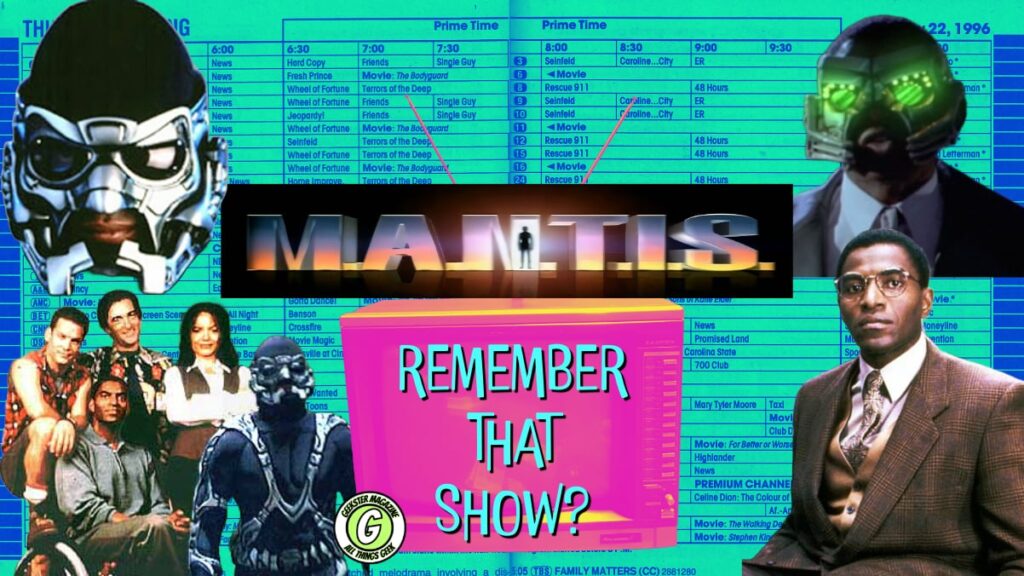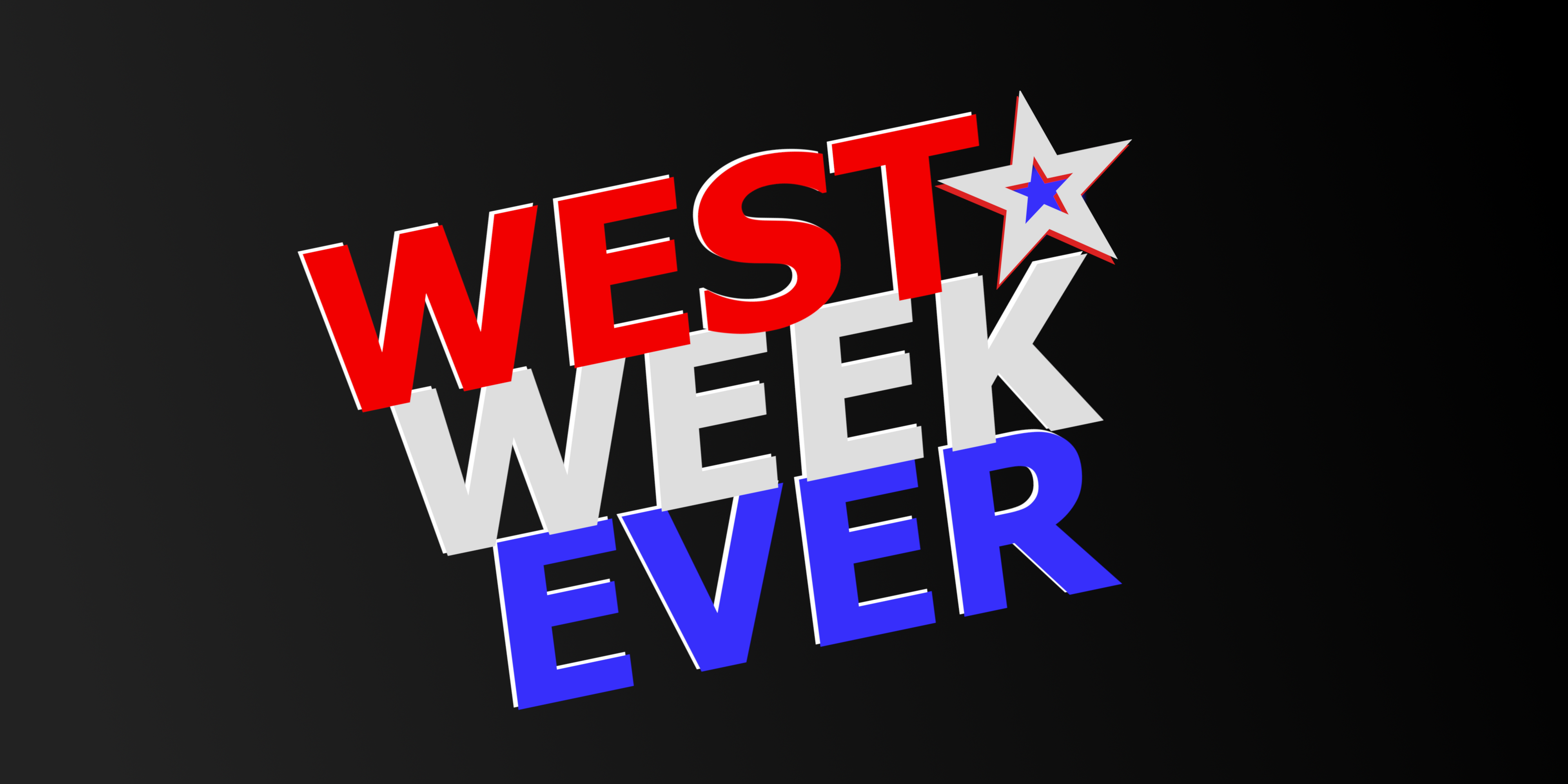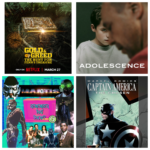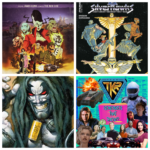
Welcome to our Black History Month episode, in nearly April! I’m kidding, as it was never necessarily slated for February. I mean, we were aiming for that, but Life was Life-ing, and we weren’t the Master Planners we probably should have been. Anyway, this go ’round is a look back at the Fox action drama M.A.N.T.I.S., starring Carl Lumbly. Lumbly was recently seen in Captain America: Brave New World, reprising his role of the first Super Soldier, Isaiah Bradey, from The Falcon and the Winter Soldier. So, we wanted to sync up with the film’s release, to show you his very first turn as a superhero. After M.A.N.T.I.S., Lumbly would go on to voice Martian Manhunter in the DC Animated Universe (DCAU), and play that character’s father in the Arrowverse Supergirl series. He’s made a career out of being the guy to call when you need an actor to lend gravitas to your superhero character. And it all started here.
Premiering on Fox in 1994, there are basically two different versions of M.A.N.T.I.S. You see, the 2-hour pilot was produced by Sam Raimi and Sam Hamm, which depicted M.A.N.T.I.S. as a vigilante who was secretly the paralyzed intellectual Dr. Miles Hawkins. Having been shot during the LA Riots, Hawkins had developed the technology to clean up the streets, and it just so happened that it also allowed him to walk again. By day, he consulted on cases with the local police, which included a medical examiner played by a young Gina Torres. Hawkins was aided in his crusade by two African interns who provided comic relief. In fact, you wouldn’t be wrong to think the modern depiction of Black Panther borrowed a lot from this version of the show. As Hawkins was actually a Black Conservative, this incarnation of M.A.N.T.I.S. was a show that had something to say about race relations amid the hot button issues of early 90s America.
When the show was picked up to series, however, what we got was an entirely different show. Everyone was recast except Lumbly, and the racial and political angles were eliminated. Now, Dr. Miles Hawkins was an inventor who was still paralyzed (using the same footage from the pilot), but there’s no mention of the riots or social unrest. He creates the tech to allow him to walk again, and only reluctantly becomes a hero after realizing the tech has other possible applications. This time, he’s aided by his friend John Stonebrake, played by Roger Rees – best known to me as Robin Colcord on Cheers. Rounding out Team M.A.N.T.I.S. is Christopher Gartin as Taylor Savage, who’s the smart-mouthed courier with his ear to the ground. It almost feels like Chris O’Donnell’s turn as Robin in the Schumacher Batman films could have been inspired by Gartin’s portrayal. Now, we have a villain of the week show, that heavily leans into the science fiction aspects of the show. We’ve got time travel, virtual reality androids, and invisible dinosaurs. Basically, it becomes exactly the type of show that would air in the same block as Fox’s other science fiction action show of the period, Sliders – which is why it’s fitting both shows would find a home on Sci-Fi Channel once Fox gave them their walking papers.
I have a very complicated history with this show, as it’s something I pretty much ignored when it aired. Ironically, the things that kept me from the show as a kid are the aspects that I now find to be the most interesting. I had very Afrocentric relatives, who were ALL IN on new black stuff just because it was black. It didn’t matter if it was good. No, just that it was black. And that low bar for entry let a lot of low quality stuff through the gate. This show premiered shortly after the debut of Milestone Media, which distributed its comics through DC Comics (though a lot of folks mistakenly thought these were DC characters, just in their own “universe”). As such, a cousin sent me every issue of the comic Hardware, as she knew I was into comics, so why not try some comics starring black heroes? On the surface, though, Hardware just felt like Steel + Tony Stark, with an extra dash of 90s Extreme. She meant well, and I still have all those issues. But after Hardware and Meteor Man, I was starting to feel like mainstream black heroes were either played for laughs, or just derivatives of established white heroes. We had gone from the era of “Lets put ‘Black’ in his name so folks know he’s black” to “OK, we heard you and we removed the ‘Black’, but we’re still not gonna put too much thought into these concepts.” So, I missed out on M.A.N.T.I.S. simply by association.
Anyway, Adam and I had a great conversation on this show, and it just might be my favorite episode to date. If you want to get in on the fun, you can find the episode here, or wherever you find fine podcasts!



